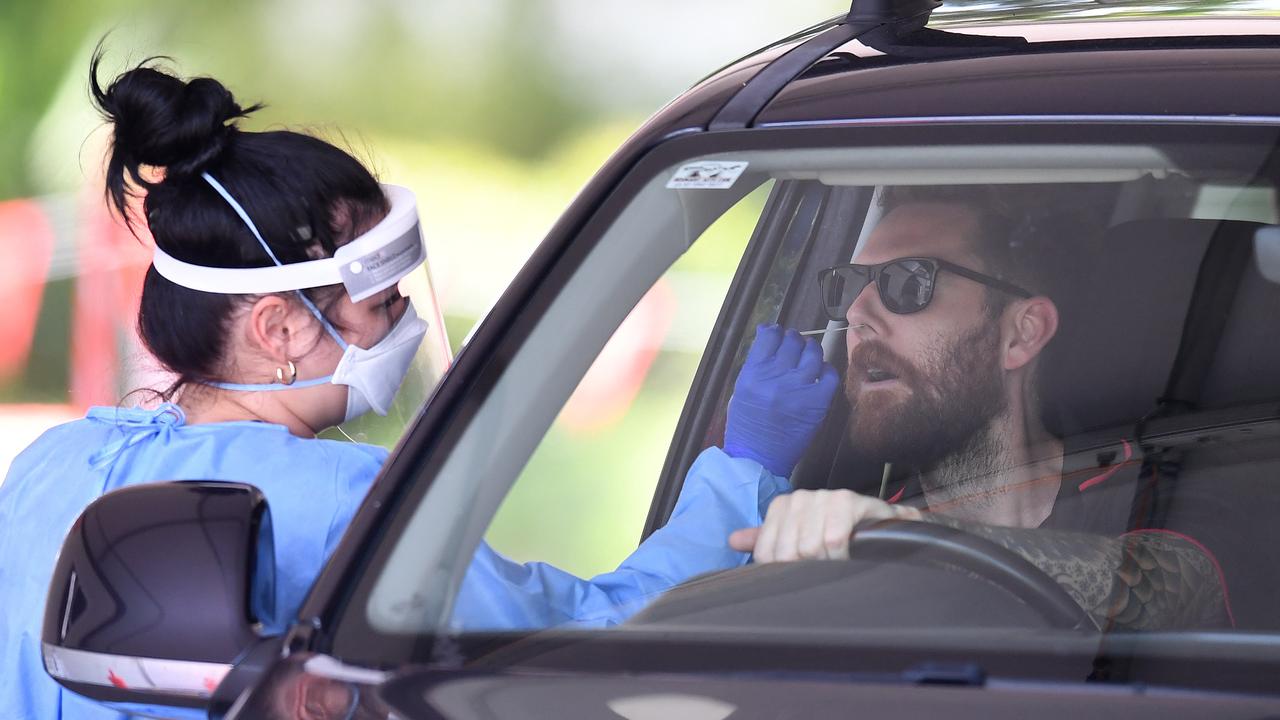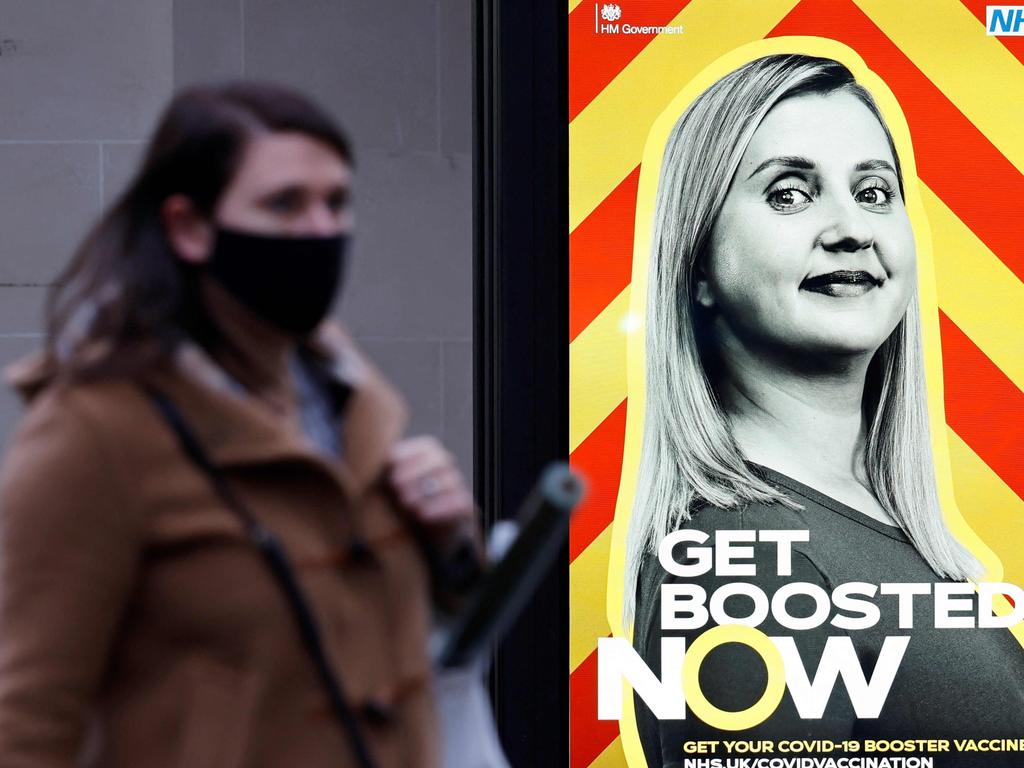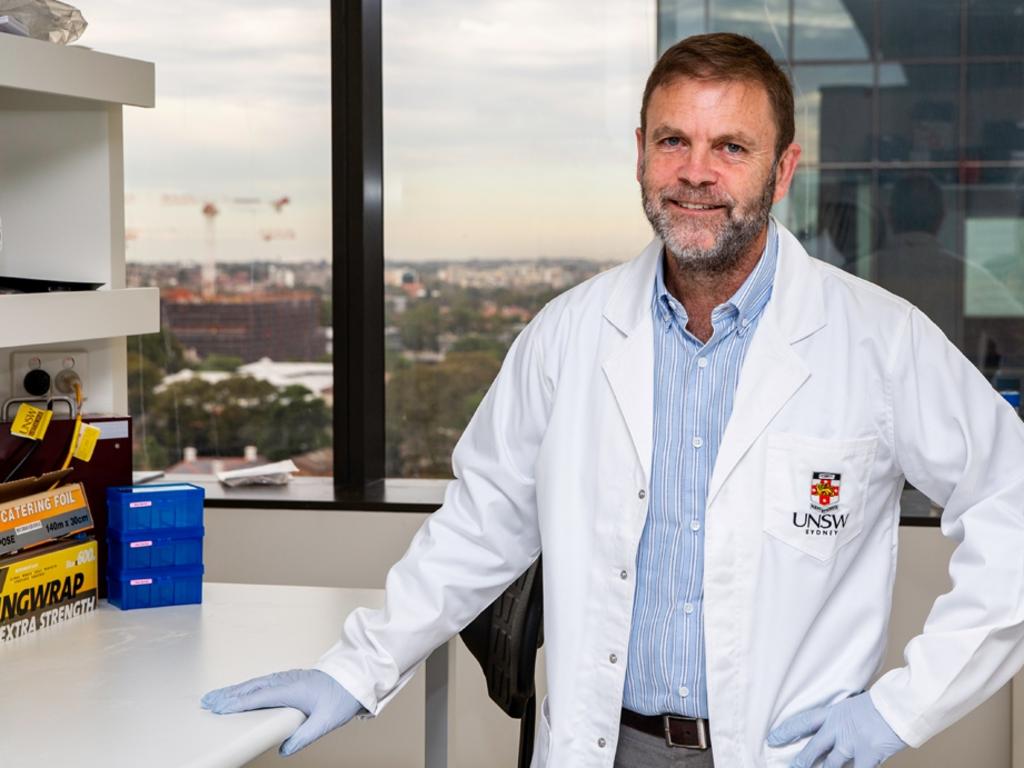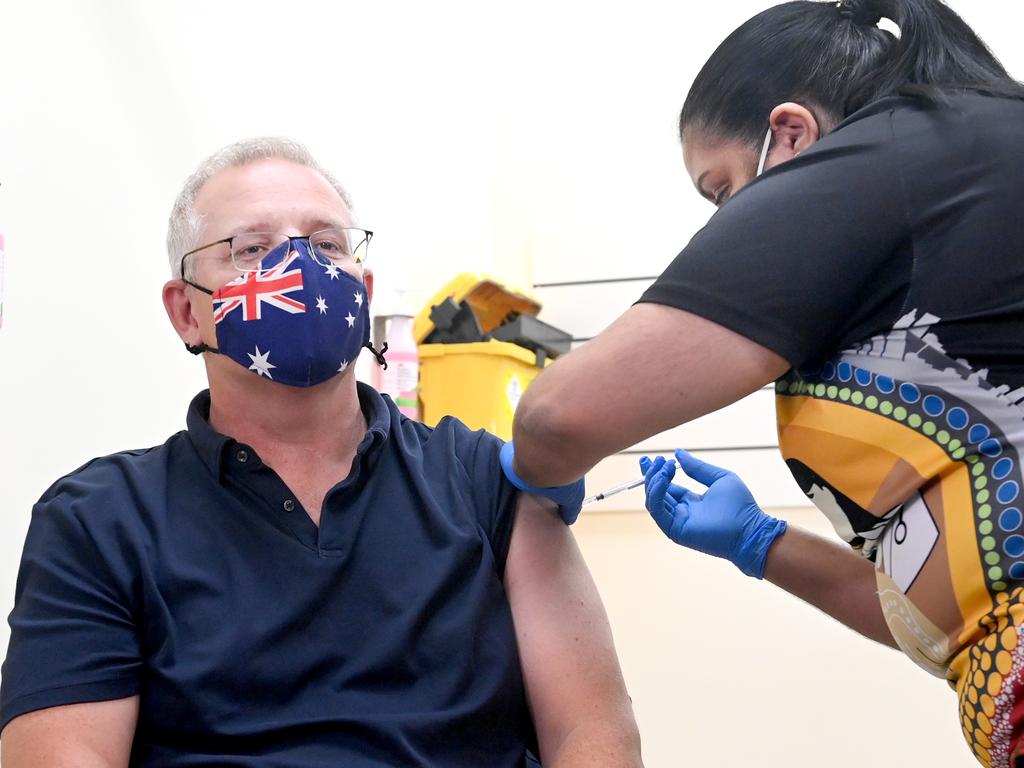Omicron outbreak: How severe it is, how it will affect Christmas
Even if you’re vaccinated against Covid-19, this is what you need to know about the fast-spreading Omicron variant and how it’ll affect Christmas.

Just five people with the Omicron variant of Covid-19 were in hospital across Australia as of Thursday, and only two of them were actually receiving treatment.
But epidemiologists warn confirmed cases of Omicron are set to skyrocket, and many of the recent spikes in daily case numbers may in fact be due to the new variant.
There are now 122 people with the Omicron strain of Covid-19 in NSW, including two in hospital. Neither of them is in intensive care.
All three of Queensland’s three confirmed cases are in hospital, but this is chiefly for monitoring and quarantine purposes.
Other states and territories have confirmed Omicron cases – 13 each in Victoria and the ACT, six in SA, two in WA and one in NT – but none of those people are in hospital.
Tasmania is yet to record a case.

In the five weeks since the Omicron variant was first identified in South Africa, it’s been estimated the hospitalisation rate was around 38 admissions per 1000 infections, compared to 101 per 1000 infections during the Delta outbreak.
In other countries it’s a bit less clear. In the UK this week there was confusion about how many people with the Omicron variant were in hospital, with one minister saying 10 and another saying 250 – although epidemiologist Chris Whitty has warned it will be a “substantial number” after Christmas. In the US, hospitalisations are up more than 21 per cent in the past fortnight, but this is primarily due to the Delta variant.
Here’s what else we know.
DOES OMICRON SPREAD MORE RAPIDLY?

Case numbers from the virus are doubling globally ever two to three days.
Virologist Dr Vinod Balasubramaniam from Monash University said Omicron had a reff value of more than three, which means the average infected person will spread the virus to another three people.
“(This reff value) is almost double that of Delta and clearly shows that Omicron has the capabilities to replace Delta as the dominant circulating strain. We are already seeing this pattern in the UK,” Dr Balasubramaniam said.
IS IT MORE DEADLY THAN OTHER STRAINS?
Despite reports Omicron resulted in a milder form of Covid-19 sickness, epidemiologists from the Kirby Centre at UNSW were far more circumspect on this point in a forum this week.
“There are signals that the disease profile (from Omicron) is not worse, and perhaps milder than other variants,” Prof Anthony Kelleher said.

But on the question of whether it would take more lives overall, he said he could not answer yet.
His colleague Dr Deborah Cromer said the data was not in, saying: “If Omicron is more or less likely to induce severe disease, we don’t have a complete handle on that.”
Prof James Naismith from the University of Oxford in the UK said even a milder variant could end up harming more people.
“If Omicron is four times less likely to cause severe disease than Delta due to population immunity (quite a big drop), then Omicron would have to cause four times the numbers (of) infections as Delta to see the same number of severe illnesses. At the current UK doubling rate for Omicron, over seven days the number of Omicron infections per day will increase by eight-fold. An eight-fold (increase) would double the number of daily hospitalisations even if four times ‘milder,’” he said.
WHAT IF YOU ARE VACCINATED AGAINST COVID-19?
New, non peer-reviewed lab studies from the Kirby Institute show vaccinated hosts had a 15-20 fold decrease in neutralising antibodies against the Omicron variant. So you can still get it even if vaccinated.
But the vaccines will still continue to have some effect, the researchers stressed.

“While we see there is very limited vaccine protection against … infection or any symptoms from Omicron … there is still some protection from severe disease and hospitalisation,” Dr Cromer said.
Hosts who had previously had a Covid-19 infection also now have very limited protection from being reinfected with Omicron, the Kirby Institute team warned.
Find a vaccine or a booster shot below:
WHAT CAN YOU DO TO PROTECT YOURSELF?
Booster shots of an MRNA vaccine, regardless of what you had for a primary course, offered the best protection, Dr Cromer said.
“Having a booster shot with an MRNA vaccine massively increases neutralising antibodies, and then results in protection against any (Covid-19) disease of quite a high level, up to 85-86 per cent protection against sympathetic disease, and around 98 per cent against severe disease,” she said.

Federal government records show 868,122 Australians had a third dose of a Covid-19 vaccine as of Wednesday.
Something that is unclear at the moment is whether the recency of your last dose, or the cumulative number of doses you have had, is the most important protection against Covid-19. The Australian Technical Advisory Group on Immunisation recently advised vaccinated people to get their booster five months after their second dose, rather than six months.
Originally published as Omicron outbreak: How severe it is, how it will affect Christmas




